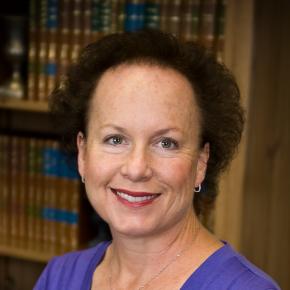Christianity Today recently reported on the trend in anti-Christian hostility, and I found it very encouraging.
Sociologist George Yancey analyzed 30-plus years of data to track approval ratings for evangelical and fundamentalist Christians. His big takeaway: What has changed is not the number of Americans who dislike conservative Christians, but which Americans.
According to American National Election Studies (ANES) questionnaires, the people who rated evangelical and fundamentalist Christians most negatively over the decades have consistently—and unsurprisingly—been politically liberal, highly educated, and less religious. But in recent years, particularly 2012 and 2016, they’ve shifted to become richer.
The average people we know and talk with about Christianity usually aren’t the hostile people we encounter in the media and social media. Because of the access we have to those forums, we can get a skewed sense of what people think about religion and Christianity. Media amplifies certain voices, and, according to the survey, anti-Christian voices have more money to amplify their viewpoints. They also have more money to bankroll social and legal campaigns. So it’s not as though this is a benign trend.
The encouraging thing I found in this survey is that most people we meet are not hostile to Christianity. They’re not the aggressive, angry voices we often engage online. So in this regard, at least, the evangelistic landscape isn’t worse than it was 30 years ago. That doesn’t mean there haven’t been some significant changes.
Our culture is a post-Christian one now. Most people haven’t been raised in church. They haven’t been taught the basic ideas of Christianity and the Bible. Many have probably barely even cracked a Bible. So there’s less familiarity to start with and more ground to till for the Christian ambassador planting seeds. And to do evangelism, you have to start with the basics, like reasons to believe God exists.
And we’re dealing with an extremely individualistic culture. Bending the knee and living under God’s authority is a foreign idea. Even Christians, shaped by our culture, struggle with this.
So the task of evangelism has changed, and every Christian needs to be ready with answers. But the average people we meet aren’t as hostile as it seems from the media. That’s encouraging since most evangelism still takes place among family and friends, person-to-person.
Certainly many Christians encounter hostility and direct challenges in their workplaces. Christian public school teachers are under increasing pressure to comply with ideas and values that violate their convictions. Bakers and florists are susceptible to legal pressure. There are new and growing challenges to religious liberty. Still, the average person isn’t hostile to Christianity and we can make an appeal to our rights and fairness as we make our case in the public square.
It’s easy to develop a defensive posture as we survey the news and social media, feeling that Christianity is under attack. That can negatively affect how we engage individuals—or avoid engaging conversations about Jesus. The study is a good encouragement to not expect a hostile response and to engage people in an attractive manner.

